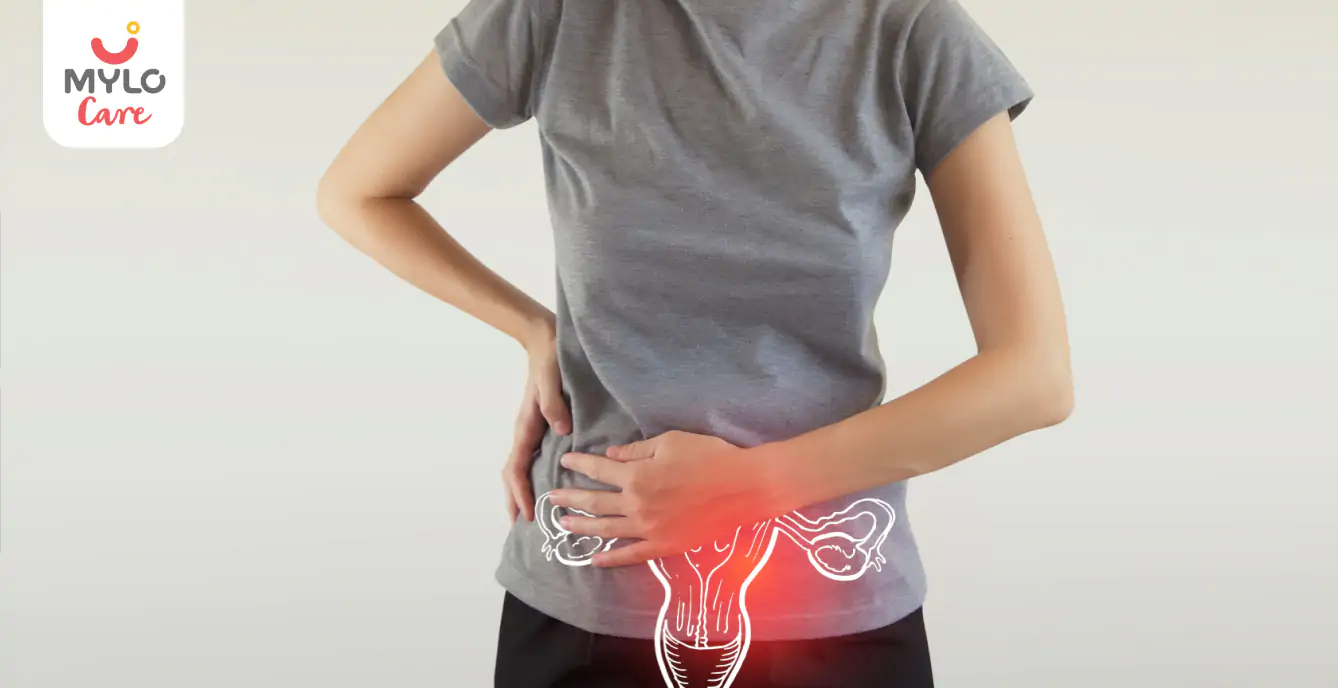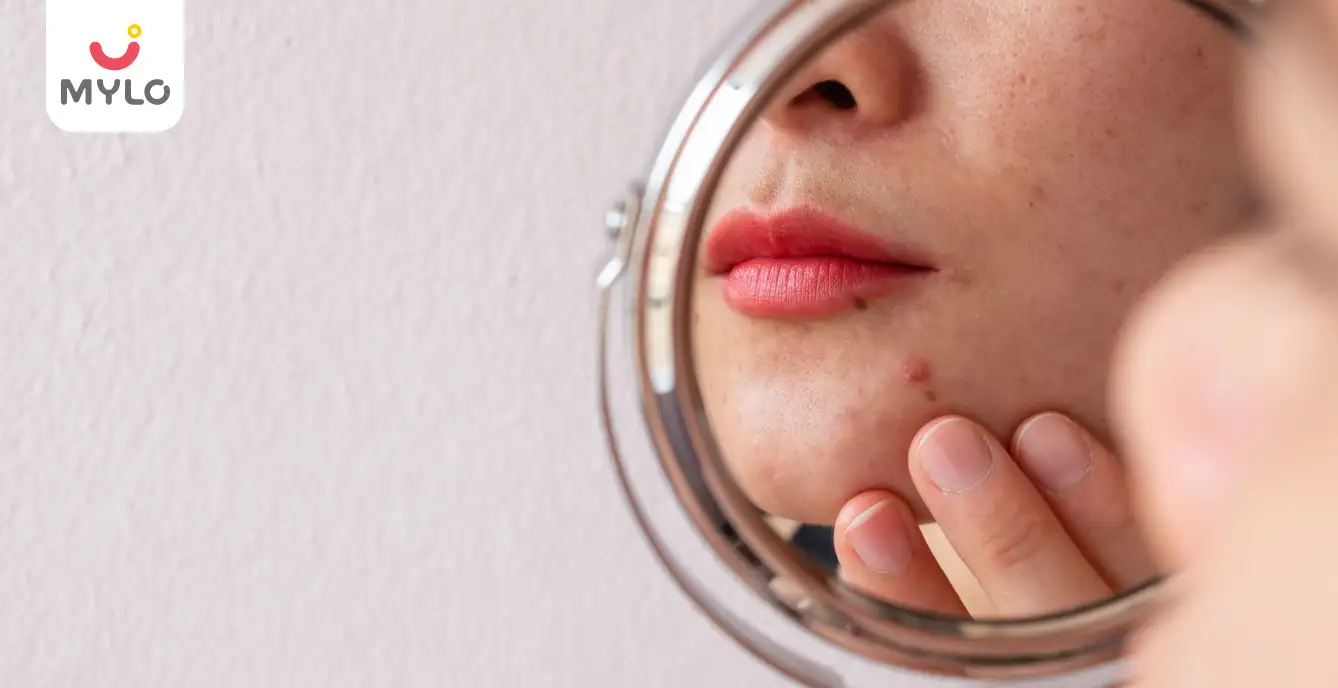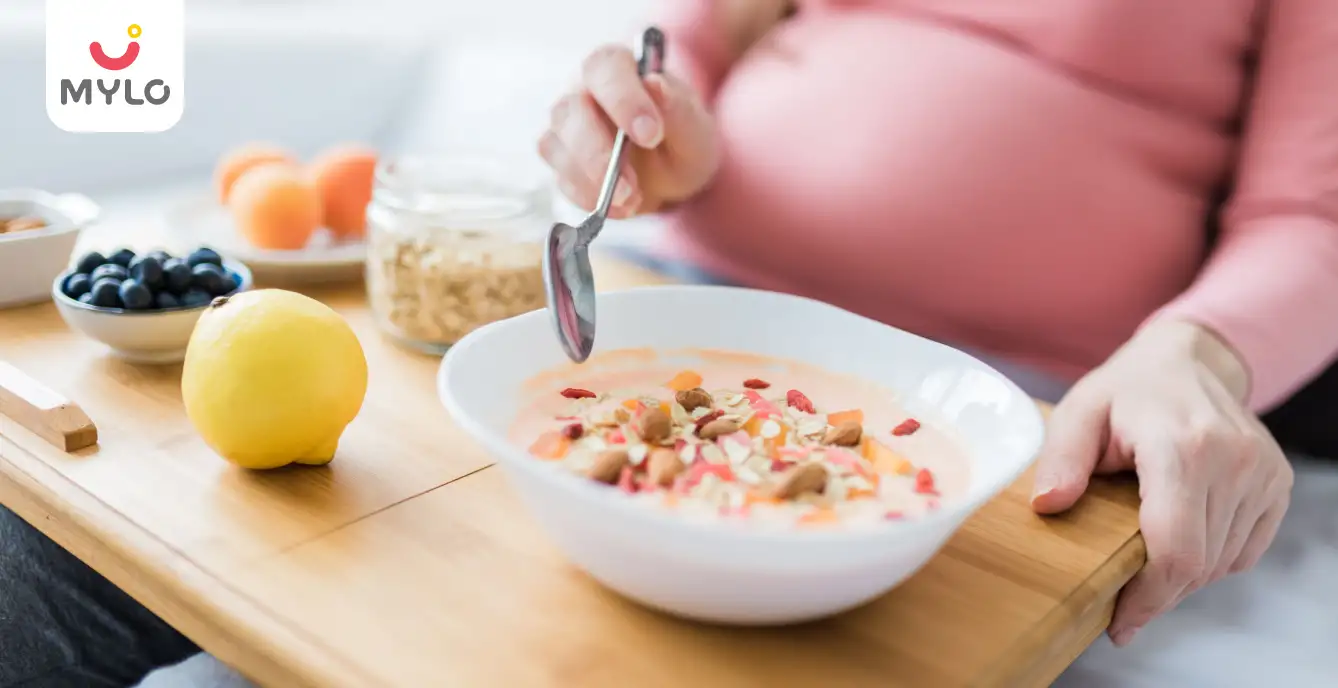Home

PCOS & PCOD

PCOS with Regular Periods: Understanding the Symptoms and Implications
In this Article

PCOS & PCOD
PCOS with Regular Periods: Understanding the Symptoms and Implications
Updated on 25 August 2023



Medically Reviewed by
Dr. Shruti Tanwar
C-section & gynae problems - MBBS| MS (OBS & Gynae)
View Profile

Irregular periods are often considered a hallmark of PCOS, but surprisingly, many women with this condition actually experience regular menstrual cycles. The absence of irregular periods often masks the underlying hormonal imbalances and lead to delayed diagnosis and management. In this article, we will delve deeper into the world of PCOS with regular periods, exploring its symptoms, implications, and the importance of early diagnosis. We will also discuss the potential health risks associated with this variant of PCOS and shed light on the treatment options available for women who fall into this category.
Can You Have PCOS with Regular Periods?
Polycystic Ovary Syndrome (PCOS) is a hormonal disorder that affects many women worldwide. It is commonly associated with irregular periods or even a complete absence of menstruation. However, it is possible for women to have PCOS with regular menstrual cycles.
Regular periods can give a false sense of reassurance, leading to delayed diagnosis and treatment. It is important to remember that PCOS is not solely defined by menstrual irregularities. Other symptoms and diagnostic criteria should also be considered.
Symptoms of PCOS with Regular Periods
Although women with PCOS and regular periods may not experience the typical menstrual irregularities associated with the condition, they can still exhibit other symptoms. Recognizing these symptoms can help identify PCOS and initiate appropriate management.
Here are seven common symptoms to watch out for:
1. Excessive hair growth
Women with PCOS often experience abnormal hair growth, known as hirsutism. This can manifest as excess hair on the face, chest, abdomen, or back.
2. Acne
PCOS can cause persistent acne that is difficult to treat. Hormonal imbalances contribute to the development of acne in women with PCOS, leading to ongoing skin problems.
3. Weight gain
Women with PCOS may struggle with weight management due to hormonal imbalances. Weight gain is common and can be difficult to control, even with a healthy diet and regular exercise.
4. Insulin resistance
PCOS is closely linked to insulin resistance, a condition in which the body's cells become less responsive to the hormone insulin. This can lead to high blood sugar levels and an increased risk of developing type 2 diabetes.
5. Mood swings
Hormonal fluctuations in PCOS can result in mood swings, anxiety, and depression. These psychological symptoms can significantly impact a woman's overall well-being.
6. Fatigue
Many women with PCOS report feeling consistently tired and lacking energy. This fatigue can be attributed to hormonal imbalances, poor sleep quality, and other underlying factors.
7. Fertility issues
Despite having regular periods, women with PCOS may still face difficulties conceiving. PCOS can disrupt ovulation, making it challenging to achieve pregnancy without medical intervention.
You may also like : PCOS Weight Loss in 1 Month How to Shed Pounds Fast
Causes of PCOS with Regular Periods
The underlying causes of PCOS with regular menstrual cycles are not yet fully understood. However, several factors are believed to contribute to the development of this condition. Here are five possible causes:
1. Hormonal imbalances
PCOS is characterized by an imbalance of reproductive hormones, particularly increased levels of androgens (male hormones) and insulin. These imbalances can disrupt the normal functioning of the ovaries and lead to the development of cysts.
2. Genetic predisposition
There appears to be a genetic component to PCOS, as it tends to run in families. Certain gene mutations and variations may increase the risk of developing the condition.
3. Insulin resistance
Insulin resistance, a condition commonly associated with PCOS, can contribute to hormonal imbalances and the development of cysts in the ovaries.
4. Inflammation
Chronic low-grade inflammation in the body may play a role in the development of PCOS. Inflammation can disrupt normal hormone production and contribute to insulin resistance.
5. Lifestyle factors
Poor diet, sedentary lifestyle, and excessive stress can all contribute to the development and worsening of PCOS symptoms. Making healthy lifestyle changes can help manage the condition more effectively.
PCOS with Regular Periods, Am I Ovulating?
A common concern for women with PCOS and regular periods is whether they are ovulating or not. Ovulation is the release of an egg from the ovary, which is necessary for pregnancy to occur naturally. In PCOS, ovulation may be irregular or absent, making it challenging to conceive. There are several methods to determine if ovulation is occurring:
1. Tracking basal body temperature
Monitoring your basal body temperature can help identify if ovulation is occurring. A slight increase in temperature indicates that ovulation has taken place.
2. Ovulation predictor kits
These kits detect the surge in luteinizing hormone (LH) that occurs just before ovulation. A positive result indicates that ovulation is likely to happen within the next 24 to 36 hours.
3. Hormone blood tests
Blood tests can measure hormone levels, such as progesterone, to confirm if ovulation has occurred. Higher progesterone levels indicate ovulation.
If you suspect you have PCOS and are concerned about your ovulation status, it is recommended to consult with a healthcare professional. They can perform further tests and provide guidance on managing your fertility.
Ovulation Induction in PCOS
For women with PCOS who are struggling to conceive, ovulation induction may be recommended. This involves using medications to stimulate the ovaries and promote ovulation. Common medications used for ovulation induction in PCOS include:
1. Clomiphene citrate
This medication helps induce ovulation by blocking estrogen receptors in the brain, stimulating the release of follicle-stimulating hormone (FSH) and luteinizing hormone (LH).
2. Letrozole
Originally developed for breast cancer treatment, letrozole is also effective in stimulating ovulation in women with PCOS. It works by inhibiting estrogen production, leading to increased FSH secretion.
Ovulation induction should always be supervised by a healthcare professional to ensure proper monitoring and avoid potential complications. The goal is to achieve a healthy pregnancy while minimizing the risk of multiple pregnancies.
Regular Periods with PCOS But Not Conceiving, What to Do?
If you have regular periods but are not conceiving, there are several steps you can take to improve your chances of getting pregnant:
1.Lifestyle modifications
Adopting a healthy lifestyle can positively impact fertility. Maintaining a balanced diet, engaging in regular exercise, managing stress levels, and avoiding smoking and excessive alcohol consumption can all contribute to optimizing fertility.
2. Timed intercourse
Tracking your menstrual cycle and having regular intercourse during your fertile window can increase your chances of conceiving naturally. Ovulation prediction methods, such as tracking basal body temperature or using ovulation predictor kits, can help determine the best time for conception.
3. Seeking fertility treatment
If natural conception does not occur after a reasonable period of trying, it may be beneficial to seek fertility treatment. Options such as intrauterine insemination (IUI) or in vitro fertilization (IVF) can help overcome fertility challenges associated with PCOS.
It is important to remember that each individual's journey to conception is unique. Consulting with a fertility specialist can provide personalized guidance and support throughout the process.
The Bottomline
PCOS with regular periods can be a complex condition to diagnose and manage. While regular periods may provide a sense of normalcy, it is essential to recognize the symptoms of PCOS with regular periods and implications associated with it. If you suspect you have PCOS or are struggling to conceive, it is recommended to consult with a healthcare professional who can provide a thorough evaluation and guide you towards appropriate treatment options.
References
1. Welt CK, Carmina E. (2013). Clinical review: Lifecycle of polycystic ovary syndrome (PCOS): from in utero to menopause. J Clin Endocrinol Metab.
2. Carmina E, Lobo RA. (1999). Do hyperandrogenic women with normal menses have polycystic ovary syndrome? Fertil Steril.





Medically Reviewed by
Dr. Shruti Tanwar
C-section & gynae problems - MBBS| MS (OBS & Gynae)
View Profile


Written by
Anupama Chadha
Anupama Chadha, born and raised in Delhi is a content writer who has written extensively for industries such as HR, Healthcare, Finance, Retail and Tech.
Read MoreGet baby's diet chart, and growth tips

Related Articles
Related Questions
Hello frnds..still no pain...doctor said head fix nhi hua hai..bt vagina me pain hai aur back pain bhi... anyone having same issues??

Kon kon c chije aisi hai jo pregnancy mei gas acidity jalan karti hain... Koi btayega plz bcz mujhe aksar khane ke baad hi samagh aata hai ki is chij se gas acidity jalan ho gyi hai. Please share your knowledge

I am 13 week pregnancy. Anyone having Storione-xt tablet. It better to have morning or night ???

Hlo to be moms....i hv a query...in my 9.5 wk i feel body joint pain like in ankle, knee, wrist, shoulder, toes....pain intensity is high...i cnt sleep....what should i do pls help....cn i cosult my doc.

Influenza and boostrix injection kisiko laga hai kya 8 month pregnancy me and q lagta hai ye plz reply me

Related Topics
RECENTLY PUBLISHED ARTICLES
our most recent articles

Women Specific Issues
Bulky Uterus: What You Need to Know About this Common Gynecological Issue

babyproducts
Mylo Baby Wipes Review

PCOS & PCOD
PCOS Treatment in Ayurveda: The Ultimate Guide to Natural Treatment Options

PCOS & PCOD
PCOS Acne: The Ultimate Guide to Causes, Treatment and Management

Diet & Nutrition
Maggi in Pregnancy: Is It Safe to Enjoy Your Favorite Instant Noodles?

Diet & Nutrition
Oats During Pregnancy: A Winning Combination for Both Mom and Baby
- Types of IVF, Their Benefits and Side Effects Everything You Need to Know..
- How to Sterilize Baby Bottles: The Ultimate Step-by-Step Tutorial
- What to eat when trying to conceive
- White Discharge After IUI: Is It Normal & When to See a Doctor
- Diet & Exercises Your Wife Can Follow During Pregnancy
- Can a diet plan help deal with infertility in women and boost the chances of conception?
- How to Sterilize Breast Pump: A Comprehensive Guide for New Moms
- Bronchiectasis Meaning in Hindi | ब्रोन्किइक्टेसिस क्या होता है?
- The Ultimate Guide to Teej 2023: Celebrations, Traditions, and Dates
- Should I Pee After Sex if Trying to Get Pregnant? And 5 Other FAQs
- Menorrhagia: A Guide to Understanding Heavy Period Bleeding (Part 1)
- Indigestion and Heartburn During Pregnancy
- Understanding Follicular Study: A Comprehensive Guide to Female Fertility
- Maternity Fashion: How to Dress in Style in Each Trimester of Your Pregnancy?


AWARDS AND RECOGNITION

Mylo wins Forbes D2C Disruptor award

Mylo wins The Economic Times Promising Brands 2022
AS SEEN IN
















- Mylo Care: Effective and science-backed personal care and wellness solutions for a joyful you.
- Mylo Baby: Science-backed, gentle and effective personal care & hygiene range for your little one.
- Mylo Community: Trusted and empathetic community of 10mn+ parents and experts.
Product Categories
baby carrier | baby soap | baby wipes | stretch marks cream | baby cream | baby shampoo | baby massage oil | baby hair oil | stretch marks oil | baby body wash | baby powder | baby lotion | diaper rash cream | newborn diapers | teether | baby kajal | baby diapers | cloth diapers |




